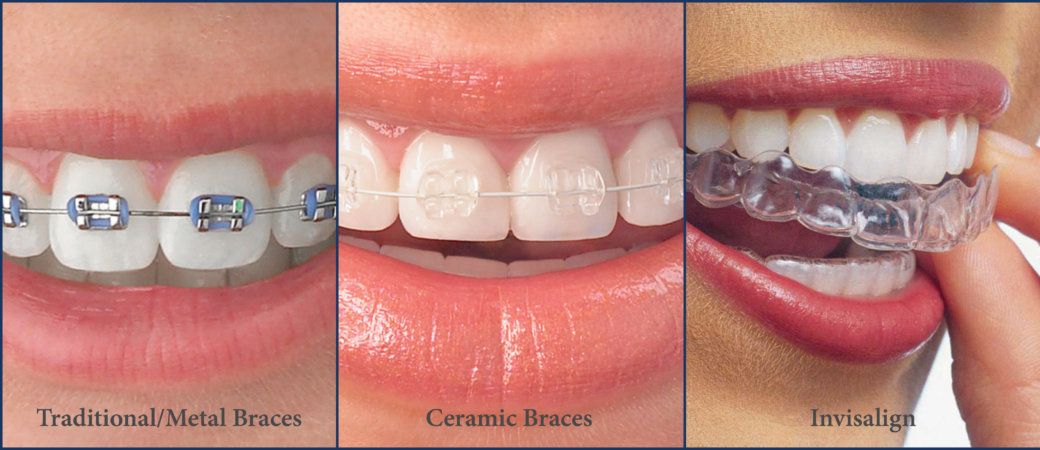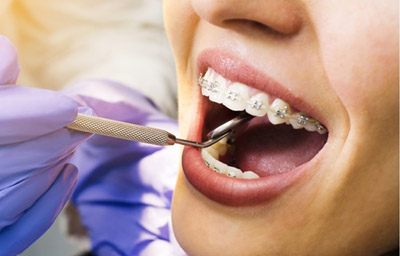Causey Orthodontics Fundamentals Explained
Causey Orthodontics Fundamentals Explained
Blog Article
How Causey Orthodontics can Save You Time, Stress, and Money.
Table of ContentsThe smart Trick of Causey Orthodontics That Nobody is DiscussingSome Known Questions About Causey Orthodontics.The Of Causey OrthodonticsThe Best Guide To Causey OrthodonticsGetting The Causey Orthodontics To WorkCausey Orthodontics - The FactsCausey Orthodontics Things To Know Before You Buy
What is the distinction in between a dental practitioner and an orthodontist? To respond to a concern that is typically asked, both dental practitioners and orthodontists help clients get far better dental health and wellness, albeit in various means. It aids to keep in mind that dentistry is an instead wide science with different medical expertises. All dental practitioners, consisting of orthodontists, treat the teeth, gum tissues, jaw and nerves.
Orthodontists and dental experts both offer oral take care of people. Orthodontists can operate in a dental office and offer the exact same treatments as other dentists. You can assume of both medical professionals that deal with gum tissue and teeth issues. The major difference is that ending up being an orthodontist needs a particular specialty in dealing with the misalignment of the teeth and jaw.
The 10-Second Trick For Causey Orthodontics
An orthodontist is a dental expert that has actually gone through training to specialize in the diagnosis, avoidance and treatment of abnormalities in the jaw and teeth. Their training includes remedying these existing problems. They can likewise recognize potential troubles in teeth alignment that may create when problems are left unattended. Orthodontists can aid individuals of all ages.
This includes all the needed education to end up being a basic dental expert. According to the American Pupil Dental Organization (ASDA), it suggests you will certainly require to have either a Doctor of Medicine in Dentistry (DMD) or a Medical Professional of Oral Surgical Treatment (DDS). In various other words, orthodontists require to finish oral school and afterwards obtain an orthodontics specialty education and learning.
Some orthodontists additionally get their masters in craniofacial biology. These programs concentrate on 2 specific areas or disciplines: Dentofacial Orthopedics: This study concentrates on directing teeth and jaw advancement.
Causey Orthodontics - Questions

 The general objective of an orthodontist is to enhance a person's bite. Not every person is birthed with straight teeth, and an orthodontist will certainly make sure that individuals get equally spaced straight teeth.
The general objective of an orthodontist is to enhance a person's bite. Not every person is birthed with straight teeth, and an orthodontist will certainly make sure that individuals get equally spaced straight teeth.
Examine This Report on Causey Orthodontics
The American Association of Orthodontists recommends your initial check up by age 7. You'll require to see your orthodontist if you have a misalignment in your teeth, also called malocclusion. If you notice uneven bite patterns, a somewhat askew jaw, or when your teeth are overcrowded, you will likely need orthodontic treatment.
In addition, we offer flexible treatment schedules, adaptable payment choices and a fun, delightful experience.
An orthodontist is a dental practitioner educated to diagnose, stop, and deal with teeth and jaw irregularities. Orthodontists work with people of all ages, from youngsters to grownups (http://www.usaonlineclassifieds.com/view/item-2698050-Causey-Orthodontics.html).
Our Causey Orthodontics Diaries
Malocclusion, or misaligned teeth, can result in oral issues, including dental cavity, gum tissue condition, and challenging or agonizing chewing. Yet not every person is born with straight teeth. If you have a negative bite or large areas between your teeth, you might wish to consult a dentist focusing on orthodontic care.
(Image Credit History: DigitalVision/Getty Images) Orthodontists utilize dealt with and detachable dental devices, like dental braces, retainers, and bands, to transform the setting of teeth in your mouth. Orthodontic therapy is for dental problems, consisting of: Jagged teethBite problems, like an overbite or an underbiteCrowded teeth or teeth that are as well far apartJaw misalignmentThe goal of orthodontic treatment is to boost your bite.
Not known Details About Causey Orthodontics

, but not all dentists are orthodontists. They concentrate on two locations: Exactly how to effectively and safely relocate teeth Exactly how to correctly lead growth in the teeth, jaw, and faceOnce an orthodontist has actually finished training, they have the alternative to become board licensed.
Malocclusion leads to tooth overcrowding, a misshapen jaw, or irregular bite patterns. Malocclusion is typically treated with: Your orthodontist connects metal, ceramic, or plastic square bonds to your teeth.
Not known Details About Causey Orthodontics
If you have only minor malocclusion, you may be able to use clear dental braces, called aligners, rather than conventional braces. Some people require a headgear to aid move teeth right into line with stress from outside the mouth. After dental braces or aligners, you'll need to wear a retainer. A retainer is a custom-made gadget that keeps your teeth in position.
Report this page